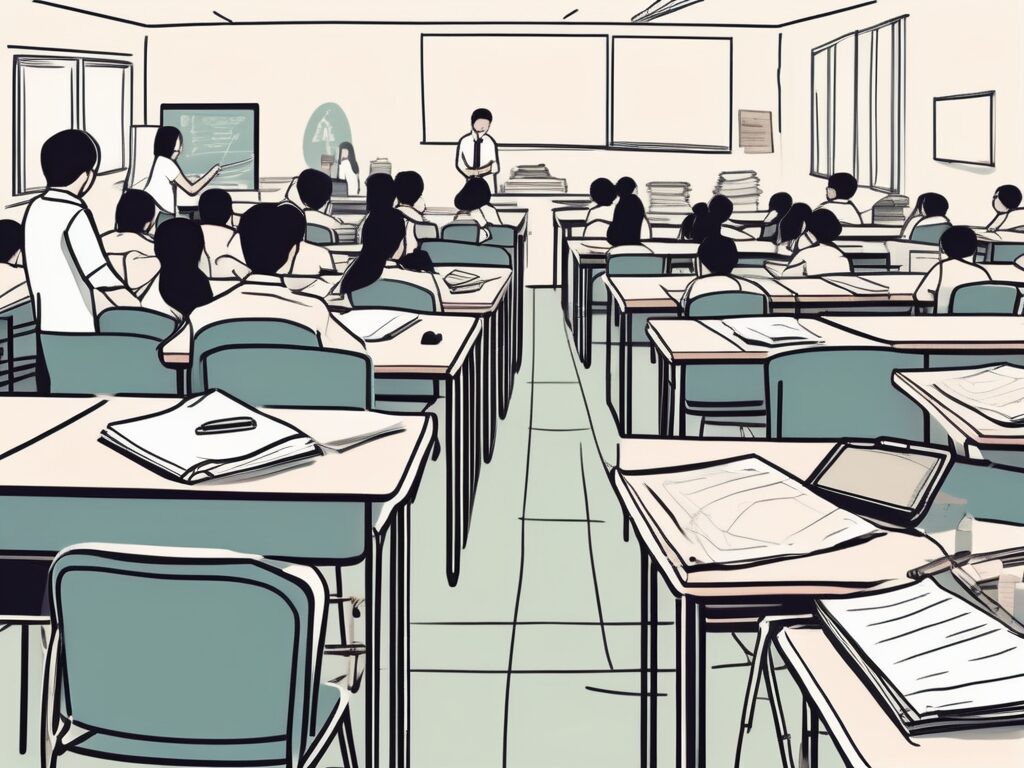Teaching is a noble profession, and it’s one that requires a great deal of dedication, patience, and skill. In Singapore, many teachers choose to further their education and skills by obtaining a Master’s in Education. However, even with this advanced degree, teachers can face a variety of challenges. In this piece, we’ll delve into six common problems that teachers with a Master’s in Education often encounter in Singapore.
1. High Expectations
One of the most common issues that teachers with a Master’s in Education face is the high expectations that come with their advanced degree. Parents, students, and even other educators often expect these teachers to be experts in their field and to deliver exceptional results. This can put a great deal of pressure on the teachers, leading to stress and burnout.
It’s akin to a chef who has trained at a prestigious culinary school. Diners will naturally expect a higher level of cuisine, and if the chef doesn’t deliver, they’re likely to be disappointed. Similarly, teachers with a Master’s in Education are expected to consistently deliver high-quality education, which can be a daunting task.
2. Keeping Up with Technological Advances
Technology is constantly evolving, and this is particularly true in the field of education. Teachers are required to stay abreast of the latest technological tools and platforms that can aid in teaching. This can be a challenge for teachers with a Master’s in Education, as their training may not have covered these new technologies.
Imagine being a carpenter who’s an expert at using traditional tools, only to find that new, digital tools are becoming the norm. It’s a similar situation for teachers, who must constantly adapt to new technologies in order to stay relevant in their field.
3. Balancing Teaching and Administrative Duties
Teachers with a Master’s in Education often find themselves juggling teaching and administrative duties. These can include lesson planning, marking assignments, attending meetings, and more. This can be overwhelming and can detract from the time and energy they have for teaching.
It’s like being a footballer who’s also expected to manage the team. Both roles are important, but balancing them can be a challenge. Similarly, teachers must find a way to balance their teaching and administrative duties effectively.
4. Adapting to Different Learning Styles
Every student is unique, and this means that they each have their own learning style. Some students may learn best through visual aids, while others may prefer a more hands-on approach. Teachers with a Master’s in Education are expected to adapt their teaching methods to cater to these different learning styles, which can be a difficult task.
Think of it like being a musician who plays to a diverse audience. Some people might prefer classical music, while others might enjoy rock. The musician has to find a way to cater to these different tastes, just as teachers must cater to different learning styles.
5. Dealing with Diverse Classroom Dynamics
Classrooms in Singapore are often multicultural, with students from a variety of backgrounds. This diversity can lead to unique classroom dynamics that teachers must navigate. This can be a challenge for teachers with a Master’s in Education, as they must ensure that all students feel included and are able to learn effectively.
It’s like being a conductor of an orchestra with musicians from different countries. The conductor must ensure that all musicians are able to play in harmony, just as teachers must ensure that all students can learn in harmony.
6. Maintaining Professional Development
Even after obtaining a Master’s in Education, teachers are expected to continue their professional development. This can include attending workshops, taking additional courses, and staying up-to-date with the latest research in education. This can be a challenge, as it requires a significant investment of time and energy.
It’s similar to a doctor who must keep up with the latest medical research and treatments. Just as a doctor must continually learn and adapt, so too must teachers.
In conclusion, while a Master’s in Education can open up new opportunities for teachers in Singapore, it also comes with its own set of challenges. By understanding these challenges, teachers can better prepare for them and find ways to overcome them. After all, every profession has its hurdles, and teaching is no different. But with dedication, patience, and a love for teaching, these challenges can be surmounted.
Advance Your Teaching Career with The IQTS at UWE
Understanding the challenges faced by teachers with a Master’s in Education is just the beginning. If you’re ready to make your next step in professional development and overcome common barriers in your teaching career, The International Qualified Teacher Status (iQTS) Programme at UWE is your gateway to success. With the iQTS, you can enhance your qualifications, increase your chances of promotion, expand your professional network, and gain a deeper understanding of global education systems—all while balancing your current work commitments. Join a community of educators who are transforming their careers and become 65% more adaptable in the international teaching landscape. Make Your Next Step with the iQTS programme and see where your teaching career can take you.

